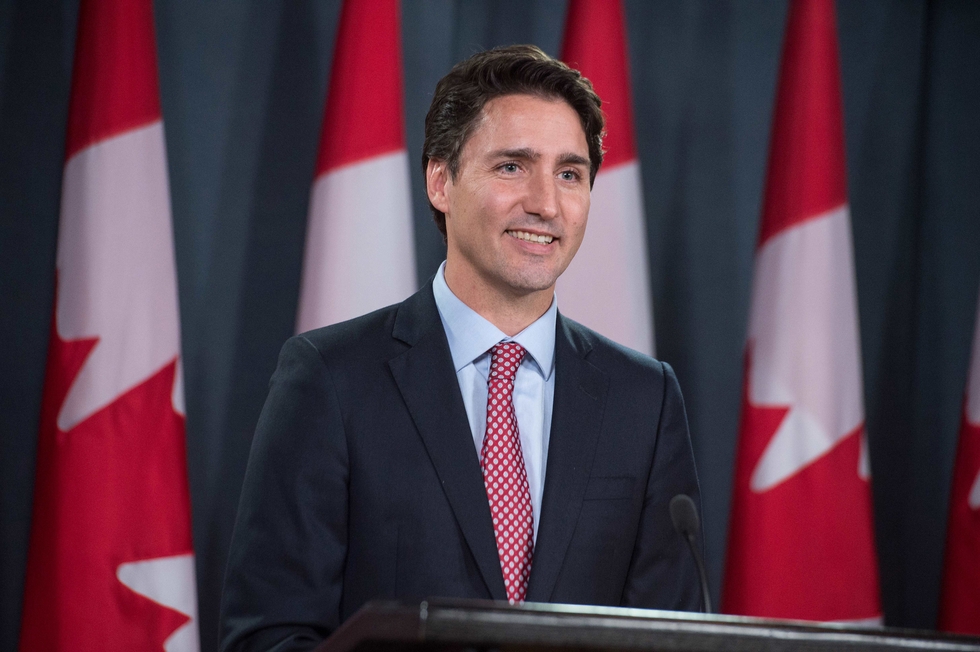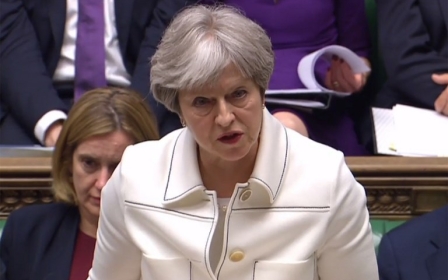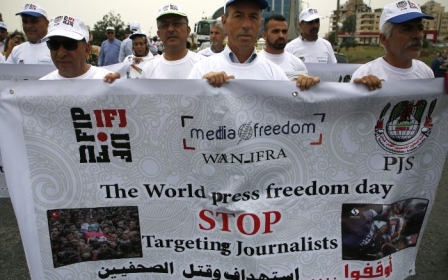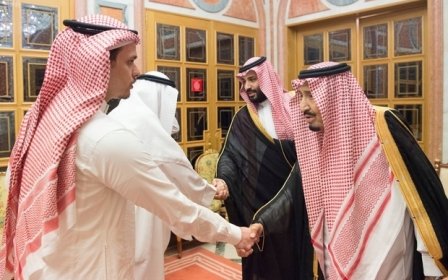Axing Saudi arms deal would cost Canadians $1bn, says Justin Trudeau

Justin Trudeau says cancelling Canada's historic weapons deal with Saudi Arabia would cost Canadian taxpaypers $1bn, only days after the prime minister said Ottawa would consider freezing export permits to the Gulf kingdom in light of journalist Jamal Khashoggi’s murder.
Trudeau said Ottawa could suspend export permits to the Saudis, but an existing $12bn agreement to ship Canadian-made, light-armoured vehicles to Riyadh is structured in a way that “makes it very difficult to suspend or leave the contract”.
“I do not want to leave Canadians holding a billion-dollar bill because we’re trying to move forward on doing the right thing,” Trudeau said. “So we’re navigating this very carefully.”
The prime minister's comments come as global pressure is mounting on countries to end their weapons exports to Saudi Arabia over the killing of Khashoggi, a Saudi insider-turned-critic and prominent Washington Post columnist.
Germany has pledged to suspend its weapons exports to Saudi Arabia over the journalist's murder, but several other countries, inclusing the UK, France and Spain, appear poised to maintain their existing deals with Riyadh.
Khashoggi was last seen on 2 October entering the Saudi consulate in Istanbul, and Turkish officials say he was killed and dismembered inside the building.
After weeks of denials and altering their explanations for what happened, Saudi officials said on Friday that Khashoggi was killed after a fight broke out in the consulate. World leaders and human rights groups have said the latest Saudi version of events isn't credible.
'The greatest test' for Canada
Earlier this week, Canada convened a meeting of cabinet ministers and government officials to discuss what approach to take in its response to Khashoggi's killing.
"There are very important questions about the entire relationship with Saudi Arabia that need to be asked," said Foreign Affairs Minister Chrystia Freeland, who stopped short of saying Canada would consider cancelling the multi-billion-dollar deal.
"It is a very serious issue," Freeland said. "We are having conversations about this murder, the importance of having an investigation, and the importance of knowing exactly what happened and who is responsible for this murder. We are also talking about a just reaction that our country must have and the way we can work in close cooperation with our allies."
The agreement, inked by the prime minister's predecessor, Stephen Harper, in 2014 and later given the green light by the Trudeau government, involves sending light-armoured vehicles to Saudi Arabia for use by the country's National Guard. The weapons are being built by General Dynamics Land Systems Canada, an Ontario-based company.
Cesar Jaramillio, executive director of anti-war group Project Ploughshares, told Middle East Eye that the deal constitutes "the biggest test" for Canada's purported commitment to human rights.
If arms shipments continue ... the Saudi regime will have every reason to feel emboldened to continue its repressive behaviour
- Cesar Jaramillo, Project Ploughshares
"The incompatibility of Canadian arms exports to Saudi Arabia with domestic and international military export controls has long been apparent. Yet Ottawa has dismissed, ignored or minimised every possible red flag in its determination to continue arming Riyadh's autocratic regime," Jaramillo said in an email.
"But the situation prompted by Khashoggi’s assassination is about much more than export controls. It is perhaps the greatest test in years of Canada’s commitment to the promotion and protection of human rights."
He said conducting business as usual with the Saudi government would send a clear message to Riyadh that it can do whatever it wants without consequences.
"If arms shipments continue ... the Saudi regime will have every reason to feel emboldened to continue its repressive behaviour, knowing that Western arms will flow despite the obligatory expressions of concern by those providing them."
Middle East Eye propose une couverture et une analyse indépendantes et incomparables du Moyen-Orient, de l’Afrique du Nord et d’autres régions du monde. Pour en savoir plus sur la reprise de ce contenu et les frais qui s’appliquent, veuillez remplir ce formulaire [en anglais]. Pour en savoir plus sur MEE, cliquez ici [en anglais].




